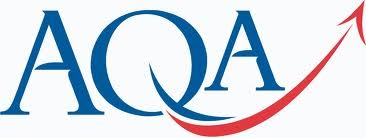Science
Contact
|
Mr Barton |
Head of Department |
|
Mrs Du Plessis |
Y7 & Y8 Lead/ Subject Teacher |
|
Mrs Gobin |
Lead of Biology |
|
Mr Ellis |
Subject Teacher |
|
Ms Gaur |
Subject Teacher |
|
Mr Jones |
Y9 Lead/ Subject Teacher |
|
Miss Majithia |
Subject Teacher |
|
Miss O'Brien |
Subject Teacher |
|
Miss Williams |
Subject Teacher |
|
Miss Reed |
Science Technician |
Curriculum Intent
To provide a high-quality science education in accordance with the Catholic ethos and charisms of the school. We believe that science provides the foundations for understanding the world through the specific disciplines of biology, chemistry and physics. Science has changed our lives and is vital to the world’s future prosperity; all pupils are taught essential aspects of the knowledge, methods, processes and uses of science to enrich their lives and understand the world around them. Through building up a body of key knowledge and concepts, pupils will be encouraged to recognise the power of rational explanation and develop a sense of excitement and curiosity about natural phenomena. They will be encouraged to understand how science can be used to explain what is occurring, predict how things will behave, and analyse causes. We will use a wide range of methods to assess pupils learning so that we can best support pupils in their journey.
Curriculum Maps
National Curriculum
Science

Key Stage 4: AQA Science GCSE's
Students will follow the AQA Science GCSE courses. Students who have opted for the Triple Science pathway will study AQA GCSE Biology (course code 8461), AQA GCSE Chemistry (8462) and AQA GCSE Physics (8463). There will be terminal assessment consisting of six 1hr 45min exams, two per subject. This will give students three GCSE Science grades from 1-9.
For students who students who have not opted for the triple science pathway they will be studying the AQA Combined Science Trilogy course (course code 8484). Students will still study all three Sciences but with slightly less content than the Triple pathway. Terminal assessment will consist of six exams at 1hr 15mins each, two per subject. This will give students two GCSE Science grades from 1-9.
|
Topics of Study |
|
Subject |
Paper 1 Topics |
Paper 2 Topics |
|
Biology |
Cell Biology
Organisation
Infection and response
Bioenergetics
|
Homeostasis and response
Inheritance, variation and evaluation
Ecology
|
|
Chemistry |
Atomic structure and the periodic table
Bonding, structure, and the properties of matter
Quantitative Chemistry
Chemical changes
Energy changes
|
The rate and extent of chemical change
Organic Chemistry
Chemical Analysis
Chemistry of the atmosphere
Using resources
|
|
Physics |
Electricity
Energy
Particle model of matter
Atomic Structure
|
Magnetism and electromagnetism
Forces
Waves
Space Physics
|
Formative Assessment
Students will be asked to complete assessments every half term by their Science teachers and it is important that students prepare thoroughly for these assessments. Teacher will conduct revision lessons in school and provide materials for home study when needed but students do need to ensure that they are also preparing at home.
CGP Revision Guides for the new GCSE are available from school at £7 each. Triple Scientists will need three books. If your child qualifies for additional funding these will be provided for them.
The internet has a breadth of revision materials to aid revision and AQA’s website also has materials such as specimen papers to refer to.